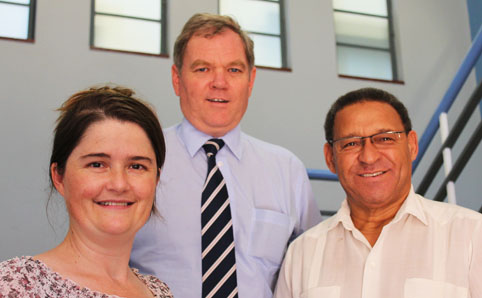Latest News Archive
Please select Category, Year, and then Month to display items
12 October 2020
|
Story Dr Cindé Greyling
|
Photo Supplied
 Exercise and nutrition can work wonders for your mental health – you don’t even have to ‘feel like’ or ‘enjoy’ moving around and eating well for it to work – it does its thing anyway.
Exercise and nutrition can work wonders for your mental health – you don’t even have to ‘feel like’ or ‘enjoy’ moving around and eating well for it to work – it does its thing anyway.
Nowadays, people talk about mental health like it is the common cold – which is good! But do you know what it really means? Being mentally healthy does not only refer to the absence of a mental illness but includes your emotional and social well-being. One would almost want to add physical well-being too, since a healthy body does indeed support a healthy mind. However, since so many people consider themselves ‘mental health experts’, some myths have been sold as truths.
Myth #1 – You are doomed.
Nope. Never. You are never doomed. There is always help. Mental-health therapies range from self-help, talk therapy, medication, to hospitalisation in some cases. Somewhere on this spectrum of treatments, there will be something that works for you. But you must be willing to get the help and do the work. For starters, exercise and nutrition can work wonders – you do not even have to ‘feel like’ or ‘enjoy’ moving around and eating well for it to work – it does its thing anyway.
Myth #2 – It won’t affect you.
It may. Research suggests that one in five people may suffer from a mental illness at some point in their lives. Being well now does not mean that it will stay that way. Biological and environmental factors both impact your mental health. Hopefully not, but at some point, you may experience an event that affects your mental health.
To remain integrated in a community is always beneficial
for anyone suffering from a mental or physical condition.
Myth #3 – Someone struggling with mental health must be left alone.
Hardly! To remain integrated in a community is always beneficial for anyone suffering from a mental or physical condition. You do not need to fix them, but to remain a friend. Continue to invite them, even if they decline. Do not judge, and do not try to understand. Just stay around.
Go and be kind to yourself, and to those around you.
Do universities need theology faculties?
2012-03-27
 |
|
From left to right: Ms Anlené Taljaard, Department of Systematic Theology, Prof. Francois Tolmie, Dean: Faculty of Theology and Prof. Alan Boesak of the International Institute for Studies in Race, Reconciliation and Social Justice. All three are from the UFS.
Photo: Leonie Bolleurs
27 March 2012
|
Challenges facing training in theology in South Africa was the focus of a public lecture by Prof. Alan Boesak of the International Institute for Studies in Race, Reconciliation and Social Justice at the university. Prof. Boesak is one in a series of speakers who were invited by the university’s Faculty of Theology to discuss the broader theme of the transformation of knowledge. The presence of a faculty of theology at a public university has been a point of discussion in many circles.
“Our country needs an RDP of the soul and who better than the theology faculties to make a contribution in this regard?” asked Prof. Boesak.
“An important challenge for a faculty of theology lies in the content that theology students learn. Does the content reflect the context of South Africa today? Theology students must be prepared to make a positive, meaningful contribution in their congregations and communities within the realities of South Africa,” Prof. Boesak said.
Prof. Boesak’s lecture was attended by not only lecturers and students in theology, but also staff members from several other departments on the university’s Bloemfontein Campus.
Several national and international speakers will present guest lectures during the year in order to sketch a more complete picture of the “transformation of knowledge”.